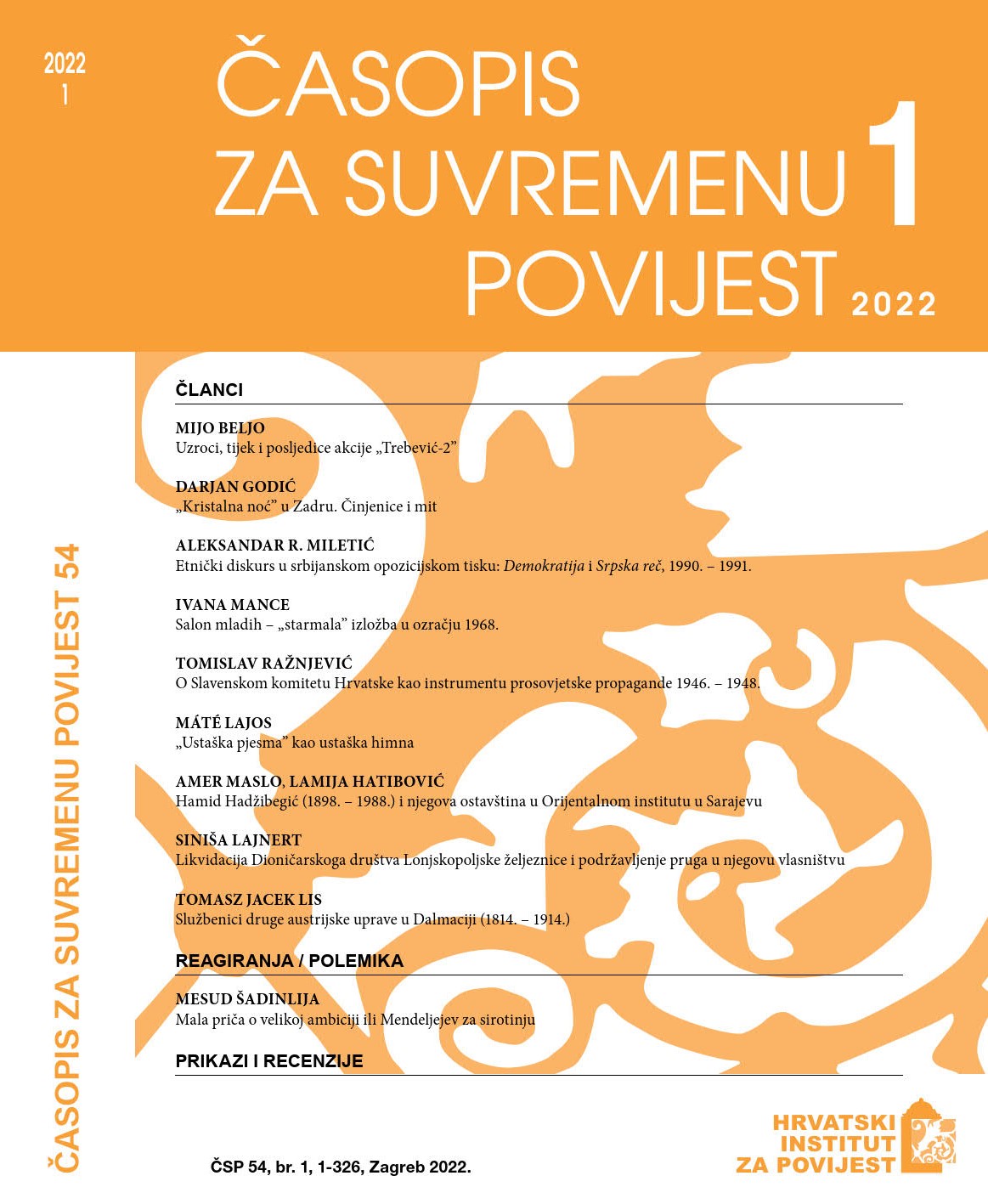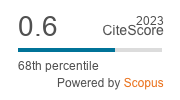The Causes, Flow, and Consequences of Operation ‘Trebević 2’
DOI:
https://doi.org/10.22586/csp.v54i1.18979Keywords:
‘Trebević 2’; Army of Bosnia and Herzegovina; crimes; Sefer Halilović; Ramiz Delalić Ćelo; Mušan Topalović Caco; Ministry of the Interior of Bosnia and HerzegovinaAbstract
In October 1993, the Muslim political and military leadership, with the full support of the President of the Presidency of Bosnia and Herzegovina, Alija Izetbegović, planned and implemented a military-police operation that was, officially, supposed to introduce order among the ‘renegade’ commanders of the 9th Motorised and 10th Mountain Brigades of the Army of Bosnia and Herzegovina (AB&H). However, a reconstruction of the events that led up to the initiation of the mentioned operation casts doubt on the official version of the events. Namely, the Muslim political and military leadership had been aware of certain inappropriate activities of some units under its command as early as the first half of 1993, but failed to take any concrete actions to sanction them. On the contrary, despite being clearly aware of these problematic activities, the leadership of the AB&H continued to use such units in combat. In September 1993, parts of these units were actively involved in the operation ‘Neretva 93’, during which war crimes were committed against Croatian civilians in the village of Grabovica on 8 and 9 September.
After a meeting held on 4 October 1993, the Muslim leadership headed by Izetbegović reached a decision to deal with the problematic military commanders of the AB&H and a part of the units under their control. However, this process of facing the criminal activities performed by members of the AB&H concealed the real conflict, which was the conflict about who had supreme influence over the army and in politics, and was actually between Izetbegović and the leader of the AB&H Chief of the General Staff, Sefer Halilović. The successful results of operation ‘Trebević 2’ left Izetbegović without any serious challengers to his authority.
Downloads
Published
How to Cite
Issue
Section
License
Copyright (c) 2022 authors and journal

This work is licensed under a Creative Commons Attribution-NonCommercial 4.0 International License.
Copyright holders are the publisher Croatian Institute of History and the authors. Journal of Contemporary History is an Open Access journal. Users are allowed to read, download, copy, redistribute, print, search and link to material, and alter, transform, or build upon the material, or use them for any other lawful purpose as long as they attribute the source in an appropriate manner according to the Creative Commons licence CC BY-NC. The papers published in Journal of Contemporary History can be deposited and self-archived in the institutional and thematic repositories providing the link to the journal's web pages and HRČAK. Journal does not charge article processing charges (APC). The editors assume no responsibility for statements of fact or opinion made by contributors.




